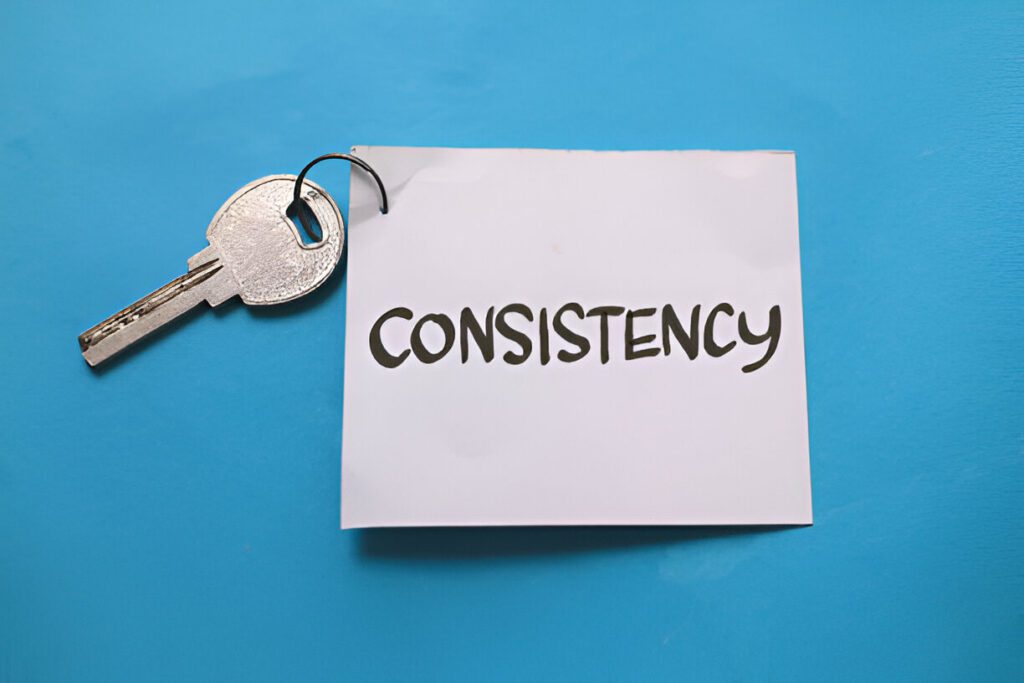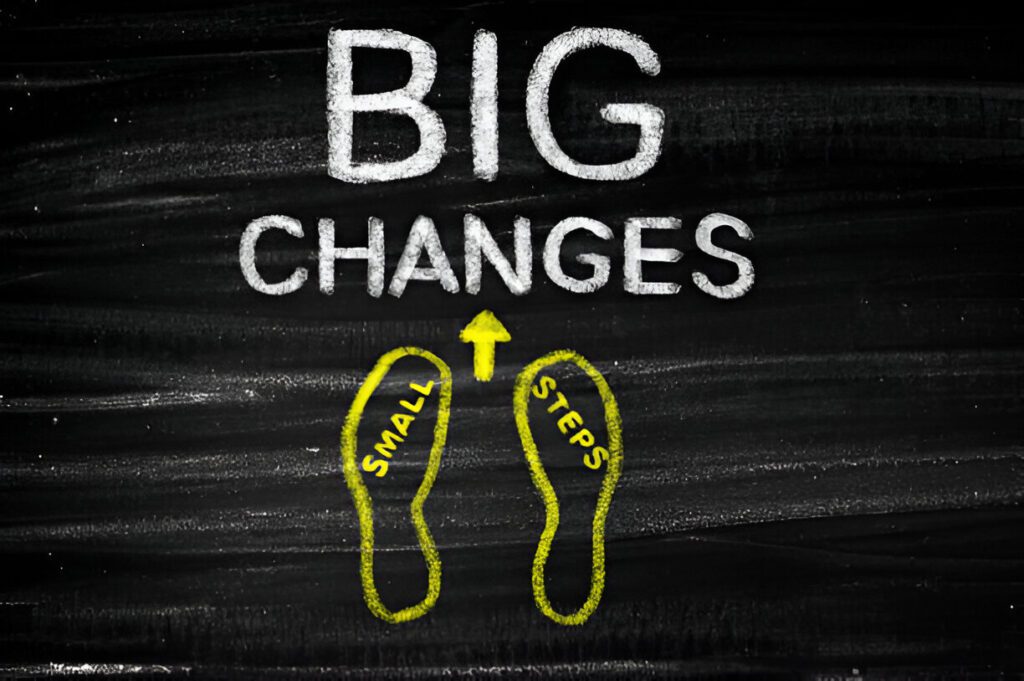Can Just 10 Minutes a Day of Self-Care Boost Your Emotional Resilience? Here’s the Research
Mind Keeps
- February 1, 2025
- No Comments
Table of Contents
ToggleIntroduction: Feeling Drained? Here’s Why 10 Minutes of Self-Care Could Change Everything
Ever feel like you’re running on autopilot—barely keeping up with deadlines, responsibilities, and the constant buzz of notifications? You wake up tired, power through the day, and collapse at night, only to do it all over again. The modern world demands a lot, and without intentional breaks, the weight of stress can take a toll on your emotional wellbeing.
But what if just 10 minutes a day could make a difference?
What Is Emotional Resilience?
Emotional resilience is the ability to navigate life’s challenges without becoming overwhelmed. It’s what helps you recover from setbacks, adapt to stress, and maintain a sense of balance even when life feels chaotic. Strong emotional resilience doesn’t mean avoiding stress—it means managing it effectively.
Can 10 Minutes of Self-Care Really Help?
Science says yes. Studies suggest that even short, intentional self-care practices can rewire the brain for resilience, lower stress hormones, and improve overall mental health. Whether it’s mindful breathing, stretching, or journaling, small daily habits can create lasting change.
This blog will dive into:
- The true meaning of self-care (and why it’s not selfish).
- The science-backed connection between self-care and emotional resilience.
- What research says about short self-care practices and their effectiveness.
- Practical 10-minute self-care ideas you can integrate into your day.
- Common challenges and how to overcome them to stay consistent.
Key Takeaways: Why You Should Keep Reading
✅ Feeling overwhelmed? Learn how small self-care moments can bring relief.
✅ Short on time? Discover how just 10 minutes a day can strengthen your emotional resilience.
✅ Skeptical? Research-backed insights prove that quick self-care practices have long-term benefits.
✅ Struggling to stay consistent? Find simple, effective ways to build self-care into your daily routine.
Ready to take control of your emotional wellbeing? Let’s explore how small changes can make a big impact.

Defining Self-Care: More Than Just Bubble Baths and Spa Days
Self-care is often misunderstood, dismissed as a luxury, or seen as an indulgence. However, in reality, self-care is essential for emotional resilience and overall well-being. It’s not about extravagant routines—it’s about small, intentional actions that nurture your mind, body, and spirit.
Debunking the Myths: What Self-Care Is Not
A major barrier to self-care is the misconceptions surrounding it. According to Lauren Barri, one of the biggest myths is that self-care is selfish. Many believe that taking time for themselves means neglecting responsibilities. In reality, neglecting self-care leads to burnout, emotional exhaustion, and decreased productivity—making it harder to show up for others.
Other common myths include:
- It’s expensive – Self-care doesn’t require lavish spa treatments or costly retreats. Simple actions like taking deep breaths, going for a walk, or listening to music can be just as powerful.
- It’s time-consuming – Many people think they need hours for self-care, but even 10 minutes a day can make a significant impact.
- It’s only for people who are struggling – Self-care isn’t just about fixing problems; it’s about preventative maintenance for your mental and emotional health.
A Holistic Approach to Self-Care
Self-care is more than just physical health—it’s a holistic practice that nurtures different areas of your well-being. As highlighted by CMHA, even basic habits like brushing your teeth or going to bed early count as self-care because they contribute to overall wellness.
A well-rounded self-care routine includes:
- Physical self-care – Sleep, exercise, hydration, and nutrition.
- Mental self-care – Reading, journaling, learning, and practicing mindfulness.
- Emotional self-care – Expressing emotions, setting boundaries, and engaging in activities that bring joy.
- Social self-care – Connecting with loved ones, joining supportive communities, and fostering meaningful relationships.
- Spiritual self-care – Meditation, prayer, time in nature, and engaging in personal values or beliefs.
Self-Care Is Personal—Find What Works for You
There is no one-size-fits-all approach to self-care. What relaxes or energizes one person may not work for another. For some, self-care means spending time alone, while for others, it involves socializing. The key is to discover what recharges you and integrate it into your routine.
Examples of Simple Self-Care Activities
Looking for easy self-care ideas? Here are a few across different categories:
- Mindfulness & Relaxation: Deep breathing, guided meditation, gratitude journaling.
- Physical Well-being: A short walk, stretching, drinking water.
- Emotional Health: Listening to music, writing thoughts in a journal.
- Social Connection: Calling a friend, hugging a loved one, sending a kind message.
- Spiritual Fulfillment: Spending time in nature, quiet reflection, or practicing gratitude.
Taking just 10 minutes a day to focus on yourself can create lasting change. But building resilience isn’t always easy—that’s why MindKeeps offers a virtual mental wellness program to help you stay on track. Schedule a free consultation today and discover how to prioritize your well-being effortlessly.

The Science Behind Self-Care and Emotional Resilience
Emotional resilience—the ability to adapt and bounce back from stress—is deeply connected to how the brain processes and responds to challenges. Self-care plays a crucial role in strengthening emotional resilience by reducing stress, balancing hormones, and improving mental well-being.
Neurological Connection: How Stress Impacts the Brain
When faced with stress, the brain triggers the fight-or-flight response, releasing stress hormones and shifting control to the emotional mind. According to Boston University, trauma and chronic stress can disrupt cognitive processing, making it harder to regulate emotions effectively. This neurological response can lead to anxiety, irritability, and difficulty making rational decisions.
By engaging in self-care activities, individuals can strengthen neural pathways that support emotional balance, improving their ability to cope with life’s challenges.
Self-Care as a Stress Buffer: Activating the Parasympathetic Nervous System
Self-care isn’t just about feeling good—it actively counteracts the effects of stress on the brain and body. As highlighted by LightworkTR, self-care practices help regulate brain function, reduce stress, and improve cognitive performance.
When you engage in relaxing self-care activities, such as deep breathing, mindful movement, or quality sleep, your parasympathetic nervous system is activated. This response:
✔ Lowers heart rate and blood pressure
✔ Reduces muscle tension
✔ Promotes a sense of calm and relaxation
This shift away from chronic stress enhances emotional resilience, allowing individuals to navigate life’s ups and downs more effectively.
The Impact of Hormones on Emotional Resilience
Stress and emotional well-being are heavily influenced by hormones like cortisol and oxytocin:
- Cortisol: Known as the stress hormone, high levels of cortisol can lead to anxiety, fatigue, and emotional instability. Self-care activities like meditation, physical activity, and social connection help regulate cortisol levels, preventing burnout.
- Oxytocin: Often called the “love hormone,” oxytocin is released through positive social interactions, self-compassion, and relaxation techniques. Higher oxytocin levels promote trust, connection, and emotional balance.
By integrating self-care into daily life, individuals can support hormonal balance, which is essential for emotional stability and resilience.
The Role of Mindfulness in Emotional Regulation
Mindfulness-based self-care enhances self-awareness, emotional regulation, and cognitive flexibility. Through mindfulness, individuals learn to:
✔ Observe emotions without being overwhelmed
✔ Reduce automatic stress responses
✔ Cultivate a balanced perspective in challenging situations
Mindfulness practices, such as meditation, deep breathing, and body scans, are proven to strengthen emotional resilience by rewiring the brain to handle stress more effectively.
Your entrepreneurial journey doesn’t have to come at the expense of your well-being. Take the first step towards building a healthier, more resilient you by signing up for a free consultation with MindKeeps today. Together, we’ll help you achieve success that’s as fulfilling as it is sustainable.
The Link Between Self-Care, Emotional Resilience, and Mental Health
Emotional resilience acts as a protective factor against mental health challenges such as anxiety and depression. When self-care is neglected, stress accumulates, leading to increased emotional distress and potential mental health struggles.
While self-care is a powerful tool, it’s essential to recognize when professional support is needed. MindKeeps offers a virtual mental wellness program designed to provide expert guidance on building emotional resilience. If you’re ready to strengthen your mental well-being, schedule a free consultation today.

Research Spotlight: 10 Minutes a Day – Is It Enough?
Time is one of the biggest barriers to self-care, but does self-care really have to be time-consuming to be effective? Research suggests that even short, intentional practices—as little as 10 minutes a day—can make a significant impact on emotional resilience and mental well-being.
The Science Behind Short Self-Care Practices
According to neuroscience research, engaging in self-compassion and mindfulness-based practices can rewire the brain for emotional resilience. As highlighted by Neuroscape, self-care activities influence brain function, improving mental health and emotional regulation. These benefits suggest that even brief self-care sessions can provide measurable improvements.
Multiple studies have explored the effects of short bursts of self-care on stress reduction, cognitive function, and emotional balance. Some of the most compelling findings include:
- Mindfulness Meditation (10 Minutes/Day): A study published in Behavioral Brain Research found that just 10 minutes of daily mindfulness meditation significantly reduced stress and improved emotional regulation in participants.
- Short Exercise Sessions (10-Minute Workouts): Research from the Journal of Happiness Studies indicates that short bursts of physical activity can elevate mood and lower stress levels as effectively as longer workouts.
Breathwork and Relaxation (10 Minutes): Studies in Psychosomatic Medicine show that controlled breathing techniques reduce cortisol (the stress hormone) and activate the body’s relaxation response, enhancing emotional resilience.
Expert Opinions: The Personalized Nature of Self-Care
Experts emphasize that self-care is not a one-size-fits-all solution—it is a personalized and adaptable practice. According to Social Work Today, effective self-care must be tailored to individual needs and preferences rather than following a generic template. This aligns with research showing that different self-care practices work best for different people.
Whether it’s mindfulness, exercise, journaling, or social connection, the key takeaway is that small, consistent efforts add up over time.
Addressing Limitations of the Research
While the research supports short daily self-care practices, some studies have limitations:
- Sample Sizes: Some studies involve small groups, making it difficult to generalize results to larger populations.
- Long-Term Impact: While short-term benefits are evident, more research is needed on the long-term effects of brief self-care routines.
- Consistency Matters: The effectiveness of a 10-minute self-care routine depends on regular practice. Occasional self-care, while beneficial, may not lead to the same results as daily engagement.
Despite these limitations, the overall trend in research suggests that even small investments in self-care can foster emotional resilience, reduce stress, and improve mental well-being.
Turning Research Into Action
Scientific evidence supports the idea that short, intentional self-care moments can make a difference. But knowing what to do isn’t always enough—having the right guidance and structure is key.
At MindKeeps, we help individuals integrate effective self-care practices into their daily lives through our virtual mental wellness program. If you’re ready to start prioritizing your well-being, schedule a free consultation today and discover how small changes can lead to lasting emotional resilience.

10-Minute Self-Care Ideas for Boosting Emotional Resilience
Life gets busy, but self-care doesn’t have to be time-consuming to be effective. Just 10 minutes a day can make a noticeable difference in your emotional resilience and mental well-being. Whether you need a moment of mindfulness, a physical energy boost, or a spark of joy, the following self-care ideas are simple, effective, and easy to integrate into any schedule.
Mindful Moments
Taking time for mindfulness can help calm the mind and improve emotional regulation. As highlighted by AFC Urgent Care, even small moments of self-care can recharge you and reduce stress. Try these 10-minute mindfulness practices:
- Deep Breathing Exercises: Try box breathing (inhale for 4 seconds, hold for 4, exhale for 4, hold for 4).
- Guided Meditation: Use apps like Headspace or Calm for a quick relaxation session.
- Body Scan: Close your eyes and do a mental scan of your body to release tension.
- Gratitude Journaling: Write down three things you’re grateful for to shift your mindset.
Physical Boosts
Moving your body is a great way to release stress and boost your mood instantly. These simple activities require no special equipment and can be done anytime:
- Stretching: Loosen tight muscles and relieve tension.
- Brisk Walk: Take a 10-minute stroll outside for fresh air and mental clarity.
- Dance to Your Favorite Song: A quick dance session can lift your spirits and energize you.
- Quick Yoga Flow: Try sun salutations or a few poses to ease stiffness and promote relaxation.
Connection & Joy
Human connection and small moments of joy can be powerful mood boosters. As referenced by The Emily Program, self-care can be as simple as recognizing small joys throughout the day. Here are some ways to do that:
- Call or Text a Loved One: A short chat can provide comfort and connection.
- Read a Chapter of a Book: Escape into a story or learn something new.
- Listen to Uplifting Music: Put on a song that makes you feel good.
Spend Time with a Pet: Animals provide unconditional love and can help reduce stress.
Making Self-Care a Habit
The key to long-term emotional resilience is consistency over intensity. Rather than waiting for the “perfect” moment, find small ways to integrate self-care into your daily routine:
- Set Reminders: Use alarms or calendar alerts for a quick self-care break.
- Utilize Breaks: Use work breaks for a stretch, a walk, or a few deep breaths.
- Combine with Daily Activities: Listen to relaxing music while commuting or journal before bed.
Regular short bursts of self-care are far more effective than sporadic, longer sessions. Small changes, when done consistently, lead to lasting improvements in emotional resilience and mental well-being.
Take the Next Step Toward a More Resilient You
Knowing what to do is just the beginning—having support and structure can make all the difference. At MindKeeps, we help individuals create sustainable self-care routines that enhance emotional resilience.
Ready to prioritize your well-being? Schedule a free consultation today and take the first step toward a healthier, more balanced life.

Overcoming Challenges and Maintaining Consistency
Building a consistent self-care routine can be challenging, especially when life feels overwhelming. Many people struggle with lack of time, motivation, or energy, making it difficult to prioritize their well-being. However, even with a busy schedule, small, intentional actions can create lasting change in emotional resilience and mental health.
Common Obstacles to Self-Care
One of the biggest roadblocks to self-care is the misconception that it’s selfish. As highlighted by Avance Care, many people feel guilty about taking time for themselves, believing they should always be productive. Other common challenges include:
- Lack of time – A packed schedule leaves little room for self-care.
- Low motivation – When stress levels are high, self-care can feel like an extra task.
- Feeling overwhelmed – Not knowing where to start can lead to inaction.
Strategies for Overcoming Challenges
Self-care doesn’t have to be complicated. As discussed by Social Work Today, self-care is a personal journey, and simple, individualized strategies can make a difference:
- Time Blocking: Schedule self-care like an appointment to ensure it happens.
- Accountability Partner: A friend or support system can help keep you on track.
- Start Small: Even five minutes a day can build consistency and create momentum.
The Role of Self-Compassion
Nobody is perfect, and missing a day or two of self-care is completely normal. As referenced by Neuroscape, self-compassion strengthens emotional resilience and helps people stay committed to their well-being without guilt. Instead of feeling discouraged, focus on progress, not perfection—the key is simply getting back on track.
Prioritize Your Well-Being with MindKeeps
Overcoming self-care challenges is easier with the right support and structure. At MindKeeps, we help individuals create sustainable self-care routines that fit their unique lifestyles.
Want expert guidance in making self-care a consistent habit? Book a free consultation today and take the first step toward lasting emotional resilience.

Conclusion: Small Steps, Big Impact
Embracing self-care and emotional resilience doesn’t require drastic lifestyle changes—just 10 minutes a day can make a significant difference. This blog has highlighted the science-backed connection between self-care and emotional well-being, the power of short, intentional practices, and practical ways to stay consistent despite challenges.
Now, it’s your turn. Start with one small self-care practice today—whether it’s a deep breath, a short walk, or a moment of gratitude. Over time, these micro-habits will strengthen your emotional resilience, reduce stress, and improve your overall well-being.
At MindKeeps, we understand that creating a sustainable self-care routine can be challenging. That’s why we offer a virtual mental wellness program designed to support your unique journey. Book a free consultation today and take the first step toward a healthier, more balanced life. Your well-being is worth it.
All Categories
This is your space for insight, inspiration, and growth. This blog is dedicated to empowering you with valuable tools and strategiesto nurture your mental well-being. Whether you’re exploring new ways to manage stress, seeking motivation to achieve your goals, or simply looking for a sense of community, you’re in the right place. Here, you’ll find expert advice, pratical tips,a snd thought-provoking articles desined to support your journey toward balance, resilience, and a healthier mindset.
Your mental wellness journey starts here—let’s grow togethe!
- All Posts
- Community Mental Health
- Family and Mental Health
- Mental Health and Personal Growth
- Mental Health Education and Awareness
- Mindfulness and Holistic Wellness
- Self-Care and Emotional Resilience
- Stress Management and Productivity
- Support for Mental Health Conditions
- Virtual Services for Mental Health
- Workplace and Mental Wellness
Benefit from our mental health consulting services and mental wellness membership program.
















